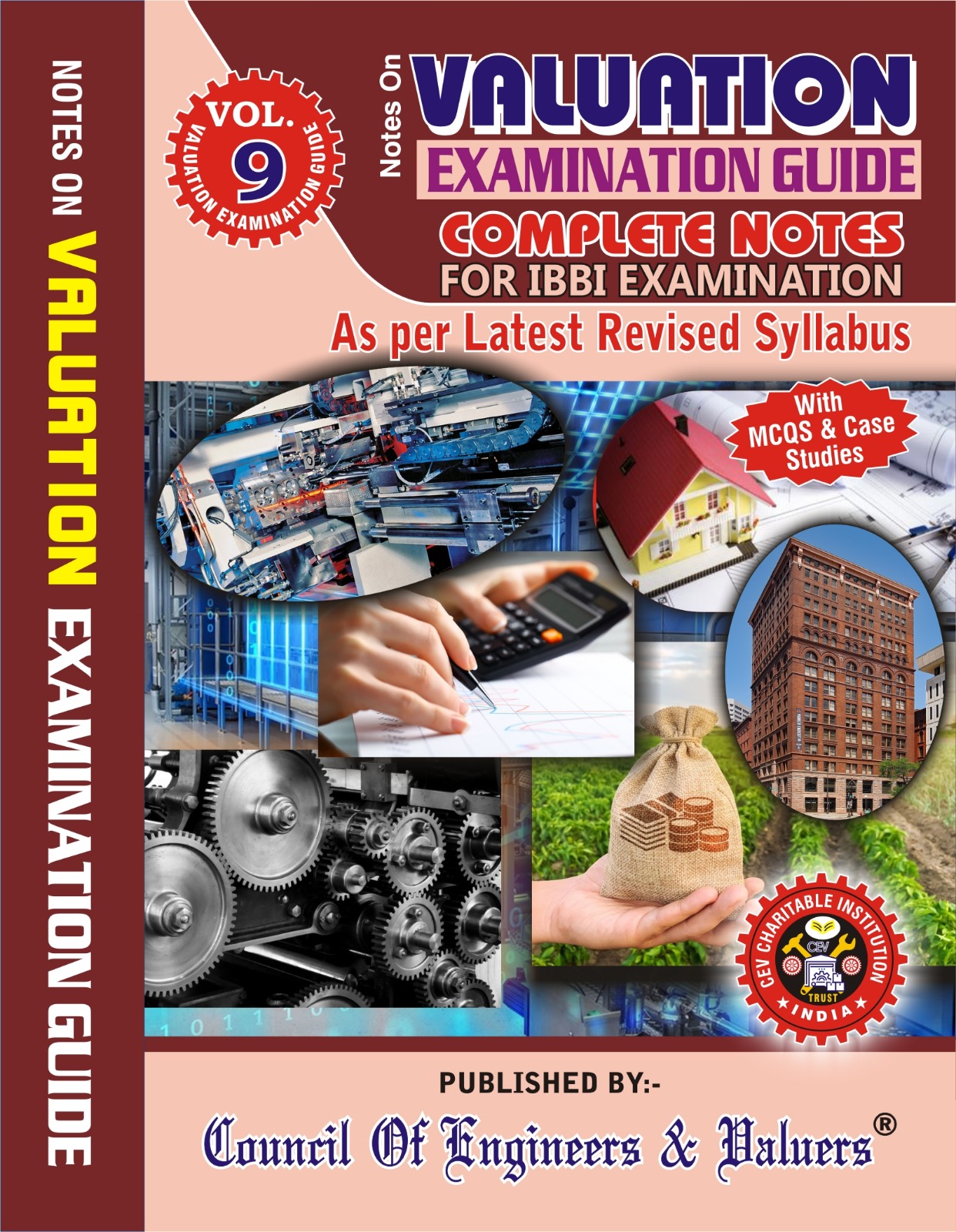Role of Approved Property Valuers in the Income Tax Department under Section 34AB of the Wealth Tax Act: A Comprehensive Guide
Property valuers play an indispensable role in India’s tax system, especially when it comes to wealth tax and capital gains tax assessments. Under Section 34AB of the Wealth Tax Act, 1957, the Income Tax Department has empowered qualified property valuers to provide accurate and unbiased valuations of immovable properties. This ensures fairness, transparency, and compliance in tax matters. Approved valuers are crucial in maintaining the integrity of India’s taxation system, as their assessments directly influence tax calculations for individuals, businesses, and government agencies.
This article provides an in-depth look at the responsibilities of property valuers approved by the Income Tax Department under Section 34AB, highlighting their role in wealth tax and capital gains tax assessments, the processes they must follow, and the challenges they face.
1. Understanding Section 34AB of the Wealth Tax Act
Section 34AB of the Wealth Tax Act, 1957 mandates that a registered property valuer, who is approved by the Income Tax Department, is required to conduct property valuations for tax-related purposes. These valuations are most commonly required for determining the value of assets, including immovable properties, in relation to:
- Wealth Tax: To assess the value of an individual’s or entity’s wealth for tax purposes.
- Capital Gains Tax: To calculate taxable gains from the sale of properties.
- Transfer of Assets: For the valuation of properties in inheritance, gifts, and other transfers that may attract tax obligations.
The Income Tax Department relies on these approved valuers to determine the market value of assets, ensuring that taxes are levied fairly and according to the law.
Key Areas of Valuation under Section 34AB:
- Wealth Tax Assessments: The valuer provides an accurate valuation of immovable assets owned by an individual or entity for wealth tax purposes.
- Capital Gains Calculations: When a property is sold, the valuer determines the fair market value to calculate capital gains tax.
- Asset Transfers: In case of inheritance or gift transactions, the valuer assesses the value of the property for taxation purposes.
2. Duties and Responsibilities of Approved Property Valuers
a) Conducting Precise and Impartial Valuations
The core duty of property valuers approved under Section 34AB is to carry out impartial, accurate, and professional property valuations. The valuation process involves:
- Assessment of Market Value: Approved valuers are required to assess the current market value of immovable properties based on a variety of factors such as property condition, location, market trends, and comparable sales data.
- Methodology: Valuers must apply internationally recognized valuation methods, such as the Sales Comparison Approach, Income Approach, and Cost Approach, depending on the type of property being valued.
- Transparency: The valuation report must be detailed, outlining the methods used, assumptions made, and any supporting evidence (like property sales data and market trends) that justify the property’s value.
b) Legal and Regulatory Compliance
Approved property valuers are bound by a strict legal and regulatory framework to ensure their valuations are legally sound and compliant with tax laws. Key legislations that impact their work include:
- Wealth Tax Act, 1957: The valuation of properties for wealth tax purposes must be conducted by an approved valuer, whose report helps in calculating the taxpayer’s wealth.
- Income Tax Act, 1961: For capital gains tax purposes, the valuer determines the fair market value of properties that are sold, ensuring that the taxpayer’s capital gains are accurately calculated.
- Transfer of Assets: For inheritance or gift tax calculations, valuers assess the fair market value of properties transferred.
- Other Legal Acts: Valuers must also be familiar with other relevant legislation such as the Stamp Act, RERA (Real Estate Regulatory Authority), and the Registration Act.
Approved valuers must also adhere to guidelines set by professional bodies like the CEV Integral Appraisers Foundation RVO, ensuring that their work meets the highest standards of ethical conduct and professionalism.
3. The Process for Becoming an Approved Property Valuer
Becoming an approved property valuer under Section 34AB requires meeting specific qualifications and criteria established by the Income Tax Department. This approval process ensures that only qualified and experienced professionals are entrusted with the responsibility of valuing assets for tax purposes.
Steps to Obtain Approval:
- Qualification and Experience: Applicants must possess relevant qualifications, such as a degree in civil engineering, architecture, or real estate, along with experience in property valuation.
- Application Process: Interested valuers must apply to the Income Tax Department, providing their credentials, experience, and proof of their competence.
- Verification and Approval: Once the department verifies the qualifications, experience, and ethical standing of the applicant, they are officially approved and registered as a valuer.
- Continuous Monitoring and Audits: Approved valuers are periodically reviewed by the Income Tax Department to ensure that they comply with professional standards and maintain their certification. Failure to adhere to these standards can result in disqualification.
Valuers are also required to be associated with a Recognized Valuers Organization (RVO), such as the CEV Integral Appraisers Foundation RVO, to ensure they follow industry standards and remain updated on changes in tax laws and valuation methodologies.
4. Challenges Faced by Approved Property Valuers
Despite the critical role they play, property valuers face several challenges in conducting accurate valuations under Section 34AB:
- Market Fluctuations: Property markets are subject to economic cycles, which can cause significant fluctuations in property values. Valuers must be able to assess market trends accurately, even in volatile conditions.
- Complex Valuation Methodology: Depending on the property type, valuers must choose the correct approach and apply it appropriately. This requires technical expertise and judgment.
- Legal and Documentation Issues: Valuers must ensure that the property’s title is clear, with no encumbrances or legal disputes. They must also verify ownership and tax records, which may not always be readily available or accurate.
- Pressure from Clients: Valuers may sometimes face pressure from clients to inflate or deflate property values to suit particular financial or tax objectives. It is crucial for valuers to remain independent and impartial in such situations.
Ethical Responsibility of Valuers
One of the most important duties of approved property valuers is to maintain independence and impartiality. They must ensure that their valuations are not influenced by any external parties, including developers, clients, or financial institutions. This is essential for maintaining the integrity of the tax system and ensuring that taxes are levied fairly.
5. The Importance of Property Valuers in the Tax System
The role of property valuers under Section 34AB is crucial in ensuring that India’s tax system remains transparent, efficient, and fair. By providing accurate and objective valuations, they support the proper assessment of wealth tax and capital gains tax. This, in turn, helps the government collect taxes fairly and ensures that property owners are paying the appropriate amount of tax based on the true market value of their assets.
In addition, their work has broader economic implications. Accurate valuations are essential for:
- Investment Decisions: Investors rely on property valuations to make informed decisions about buying, selling, or developing properties.
- Real Estate Market Transparency: Accurate valuations contribute to a more transparent real estate market, where property values are based on actual market conditions rather than speculation or misinformation.
- Economic Growth: A well-regulated real estate market, supported by reliable valuations, helps drive economic growth by fostering investment, development, and a stable financial environment.
The Future Role of Property Valuers in India’s Tax and Economic Systems
In conclusion, approved property valuers under Section 34AB of the Wealth Tax Act play a vital role in the Indian taxation system. Their work ensures that property valuations are conducted in a transparent, fair, and legally compliant manner, contributing to the integrity of the tax system. As India’s real estate sector continues to grow and evolve, the role of property valuers will become even more critical in supporting the fair assessment of wealth tax and capital gains tax, thus promoting transparency and economic stability.
The CEV Integral Appraisers Foundation RVO and other Recognized Valuers Organizations (RVOs) will continue to provide the necessary support, training, and certification for property valuers to maintain high professional standards and stay updated with regulatory changes. As the profession grows, property valuers will remain at the heart of India’s tax and real estate systems, helping to ensure that property valuations reflect true market values and support the country’s broader economic objectives.



